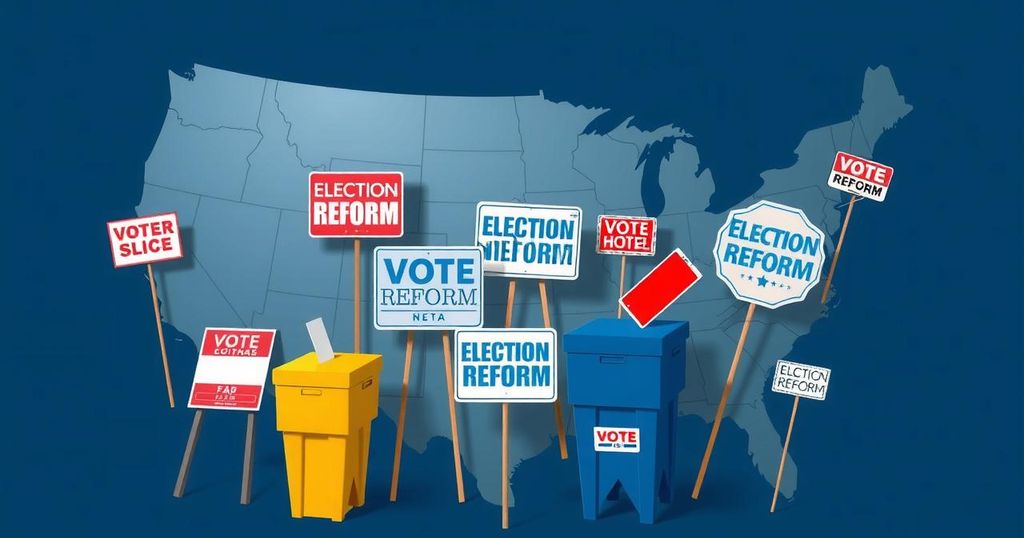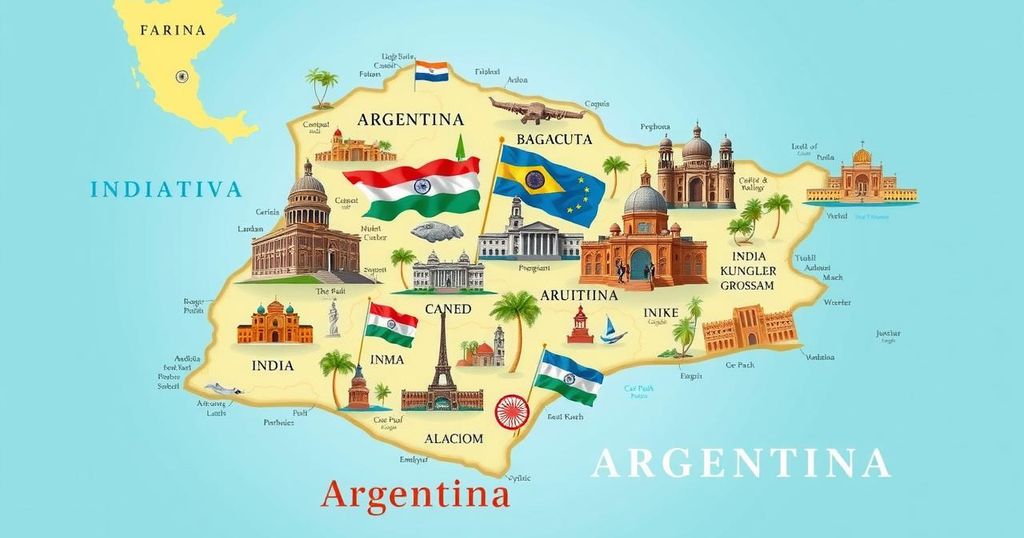Voters Across The U.S. Reject Historic Election Reform Measures Despite $100M Campaign
Recent U.S. elections highlighted a widespread rejection of significant election reform measures, including ranked choice voting and open primaries, despite the advocacy group spending over $100 million. Activists expressed disappointment, noting that voters remain largely satisfied with traditional electoral practices. Notably, certain victories for ranked choice voting were recorded in specific locales, contrasting sharply with the broader pattern of defeats. Further analysis is needed as advocacy groups reassess their strategies for promoting electoral reforms.
In a recent series of elections, voters across the United States decisively rejected several significant election reform initiatives despite the advocacy efforts that mobilized over $100 million in funding. Activists aimed to reform traditional partisan primaries and introduce ranked choice voting, hoping to increase candidate choices for voters. However, their proposals were systematically defeated in numerous states, including Arizona, Colorado, Idaho, Missouri, Montana, Nevada, Oregon, and South Dakota. John Opdycke, president of Open Primaries, reflected on the unsuccessful outcomes, stating, “It turns out, in retrospect, we weren’t yet ready for prime time.” The failure of initiatives in both red and blue states revealed a prevailing preference among voters for established voting practices.
Opponents of the proposed changes, such as Trent England, executive director of Save Our States, noted that while the electorate is frustrated with the political climate, many citizens remain content with traditional voting systems, suggesting that the timing of reform efforts may have been premature. Efforts aimed at implementing ranked choice voting and open primaries had initially demonstrated some momentum after Alaska’s narrow approval of these measures in 2020, but this year, both Alaska and Nevada saw reversals. In Alaska, an initiative attempting to repeal open primaries and ranked choice voting fell short with just 49.9% approval.
Despite these setbacks, certain regions, including Maine and portions of Washington, D.C., have successfully implemented ranked choice voting. In San Francisco, notable outcomes were achieved through ranked choice voting, which allegedly prevented vote-splitting among similar candidates. However, critics argue that the complexities of ranked choice voting may deter voter participation, as evidenced by about one-fifth of voters in Portland skipping local elections after the introduction of this system.
The speculative potential for reforming electoral processes in the United States has faced considerable challenges as voters have consistently shown reluctance to embrace changes such as ranked choice voting and open primaries. Historically, initiatives aimed at altering these mechanisms have sparked debates about voter preference, political polarization, and the overall effectiveness of alternative voting systems. The large funding efforts by supporters of reform aimed to shift traditional voting patterns, reflecting a growing dissatisfaction with conventional electoral procedures, yet the recent outcomes signal a need for a reevaluation of strategies in advocating for electoral reforms.
In conclusion, despite the substantial financial backing and organized advocacy efforts, the recent elections demonstrated a clear rejection of proposed election reforms by voters across various states. The ongoing debate surrounding the efficacy and acceptance of alternative voting methods such as ranked choice voting remains contentious, prompting advocates to reconsider their approaches. Future strategies may require foundational grassroots efforts to cultivate public support for changes in electoral processes, as well as an understanding of voter preferences and concerns. John Opdycke and Nick Troiano’s comments underscore the importance of adapting reform strategies for eventual success.
Original Source: www.independent.co.uk




Post Comment